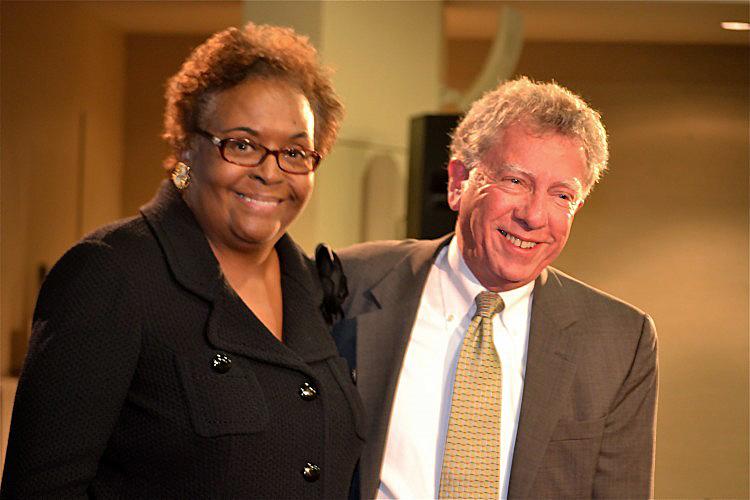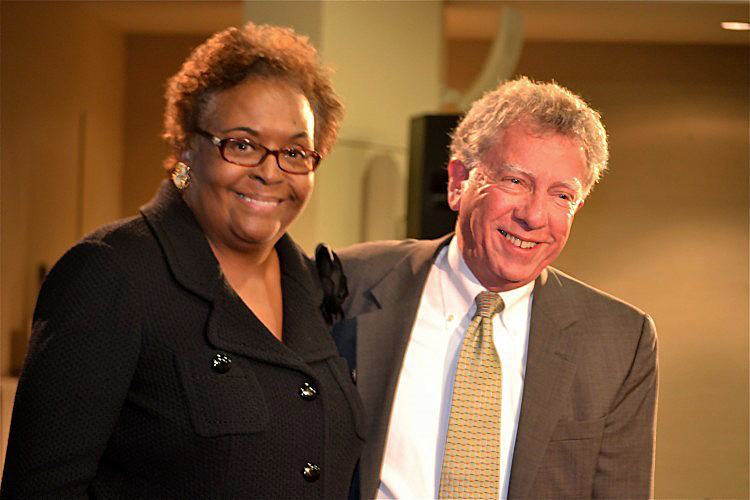ATLANTA—Nearly 50 European Jewish scholars escaped the Holocaust and came to teach at black colleges in the Deep South. These new immigrant teachers nurtured countless African American artists, leaders, and intellectuals, according to former Howard University president Dr. Joyce Ladner.
“From Swastika to Jim Crow,” is a film that explores this little known history of Nazi refugees in the American south. Following a screening of the film at the William Breman Jewish Heritage Museum on Dec. 4, Dr. Ladner—now a senior fellow in the Government Studies Department at The Brookings Institution—recalled her experience of the time.
Enrolled at Jackson State in Mississippi at age 17, Ladner said faculty and even other students were encouraged to report on each other, to ferret out any resistance to the status quo.
“Jackson State was a prison. I hated it,” she said.
Ladner and her sister organized a “sympathy demonstration” on campus for students jailed for a sit in at the public library. The college president grabbed her sister by the shoulder and threw her to the ground. They were both expelled.
So Ladner moved on to Tougalou College, only a few miles from Jackson State. Upon entering the ornate scrollwork gate, she saw a racially integrated group sitting on the grass.
They looked happy, she said. They were Freedom Riders; people who opposed segregation.
At Tougalou, Ladner met sociology professor Dr. Ernst Borinski—admissions counselor for prospective law school and medical school students.
“He‘d say, ’come over to the lab and we‘ll work on your grad school application,”’ she said. When she told him she had no money for the application fee, he wrote her a check.







